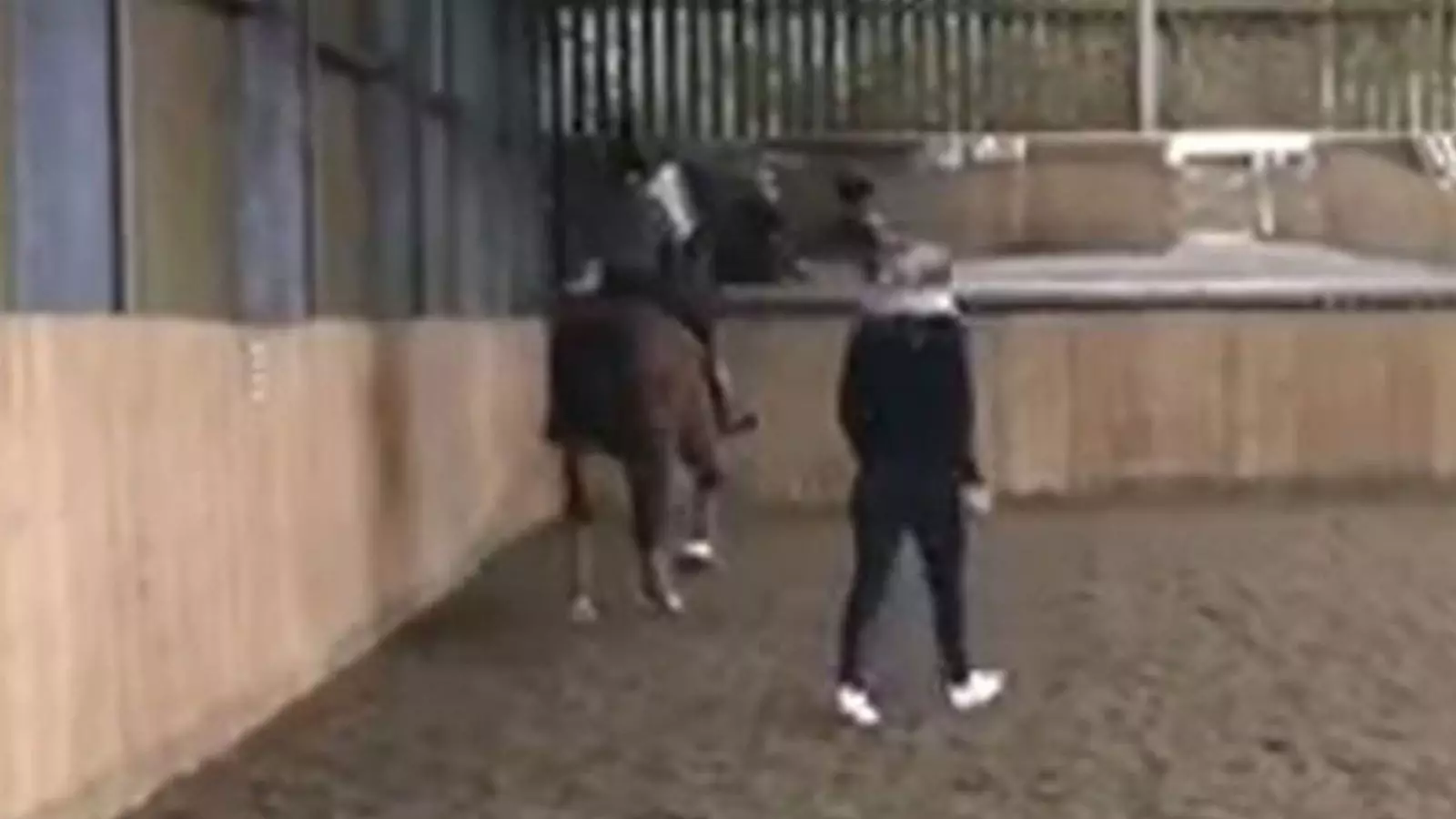In the world of competitive sports, the integrity of athletes significantly impacts both their personal reputation and the image of their respective sports. Recently, a shocking video surfaced depicting British equestrian star Charlotte Dujardin, a highly celebrated figure known as one of Team GB’s most decorated Olympians, engaging in behavior that has raised serious ethical concerns. The footage shows her allegedly whipping a horse during a training session, igniting tumultuous debates about animal welfare within equestrian disciplines. The backlash was immediate, prompting Dujardin to announce her withdrawal from the upcoming Paris Games, citing deep regret and remorse for her actions, which she describes as an “error of judgment” that doesn’t reflect her true character as a trainer.
While Dujardin insists that the incident does not represent her usual training methods, the gravity of the accusations cannot be understated. The video capturing Dujardin’s actions reportedly originated over two years ago, although she claims the incident occurred four years prior. The whistleblower, whose legal representation provided context on the situation, indicated that this was not an isolated incident, as their client had witnessed various instances of abusive behavior. This raises troubling questions about the power dynamics within the equestrian community, where prestige and reputation might discourage professionals from speaking out against misconduct.
Consequences and Repercussions
The repercussions of Dujardin’s actions have been swift and significant. The International Federation for Equestrian Sports (FEI) has provisionally suspended her from the sport for six months, while UK Sport has also revoked her eligibility for funding, reflecting the seriousness with which these allegations are being treated. The British Equestrian authority emphasized its commitment to equine welfare, stating that the well-being of the horse must always take precedence, highlighting the broader ethical responsibilities that riders have towards their animals.
The incident raises a poignant realization about the varied standards of conduct expected from equestrians, particularly at the elite level. Historically, prominent figures in equestrian sports have faced scrutiny for their treatment of horses, serving as a reminder that accountability must be upheld to ensure the welfare of these animals. Dujardin herself has faced criticism in the past, notably during an incident involving blood found on her horse’s side during the 2019 European Championships, a situation that was deemed serious, despite her assurance that there was no intention to harm the animal.
Charlotte Dujardin’s case exemplifies an urgent need for reform within equestrian sports to promote ethical treatment of horses. The community must foster an environment where reporting abuse is not only safe but encouraged, helping to dismantle the intimidation often faced by whistleblowers. As the sporting world evolves, it is essential to reflect on how the treatment of animals can tarnish the reputation of a sport revered for its artistry and beauty.
This incident could potentially serve as a turning point for the equestrian community, prompting a reassessment of training practices and the philosophies guiding athlete behavior. As more professionals come forward to speak up against abuse, a cultural shift towards more humane and compassionate training methods could emerge, enhancing overall animal welfare standards in the sport. The forthcoming investigations will likely intensify discussions around governance, accountability, and best practices to promote greater transparency within equestrian disciplines.
Charlotte Dujardin’s current predicament is emblematic of broader issues within equestrian sports and challenges the community to reflect on its standards of conduct. With public sentiment increasingly leaning towards animal welfare, athletes must adapt to a reality where their actions have far-reaching consequences. In a world that increasingly values compassion and ethical practices, Dujardin’s journey offers an important reminder of the responsibilities that come with prestige and the profound impact that behavior can have on one’s career longevity. Moving forward, the equestrian community must commit to self-regulation, elevating standards to safeguard both the athletes and the creatures they dedicate their lives to training.


Leave a Reply